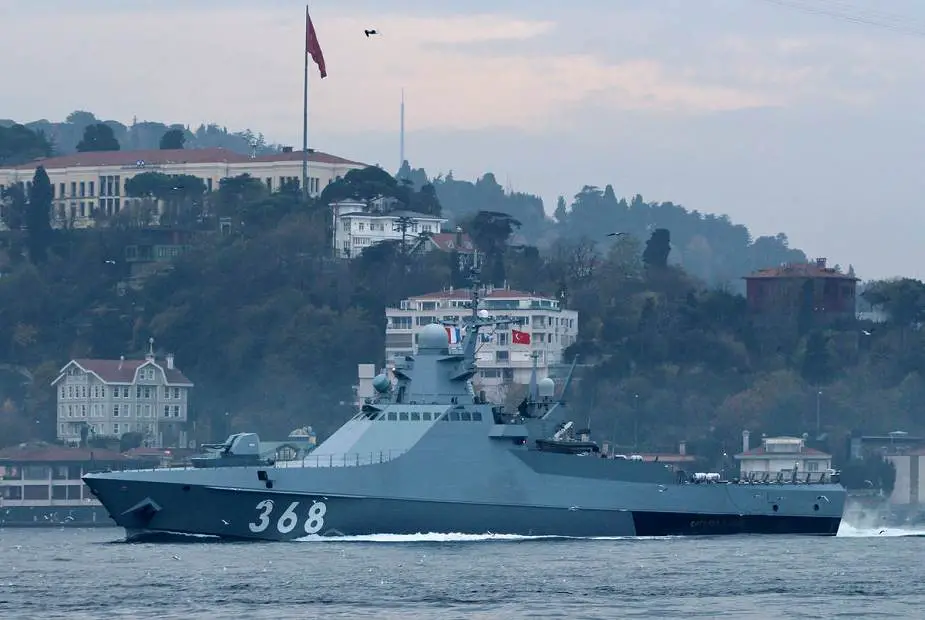Breaking news
Russian Navy Vasily Bykov corvette of project 22160 completes Arctic trials.
According to information published by the Russian press agency TASS on November 5, 2020, the Russian Navy Vasily Bykov corvette of project 22160 has completed Arctic trials. It tested its armament and life support. It was believed that project 22160 warships are unfit for the Arctic, but the corvette coped with all missions. It means the corvettes can operate in the northern seas against submarines, the Izvestia daily writes.
Follow Navy Recognition on Google News at this link
 Russian Navy Vasily Bykov corvette of project 22160. (Picture source Turkey Live Map website)
Russian Navy Vasily Bykov corvette of project 22160. (Picture source Turkey Live Map website)
The corvette sailed several months. It left the Black Sea in June for the Mediterranean, circled the French coast and sailed the North and the Baltic Seas to St. Petersburg for the Navy parade. It then sailed to the White Sea.
The Northern fleet said the Vasily Bykov arrived in its main naval base to test the weapons. The corvette spent two months in the Arctic. It confirmed that project 22160 warships can operate against submarines in the north, former Navy Chief-of-Staff Admiral Valentin Selivanov said.
“Many countries have claimed the region of late. US submarines train patrol under ice and surfacing. The successful sortie of the Vasily Bykov is important. It tested the operation of acoustic systems in the latitudes, airspace and sea monitoring means, and the engagement of weapons. It was a valuable sortie which provided a lot of data for the construction of other corvettes of the series,” he said.
Project 22160 corvettes have a modular scheme and can carry weapons for a specific combat mission. The sonars and other equipment are onboard in 40-ft sea containers.
Expert Dmitry Boltenkov believes the Arctic trials focused on the containers. “They mostly tested containers with missiles. After launches, they were possibly replaced with other modules. The White Sea is good for missile launches and has a proper range for them. Besides weapons, all other systems, such as life support and air conditioning, were tested in the harsh climate,” he said.
New modules with weapons and auxiliary equipment are tested. They include various seaborne weapons that can be delivered by sea to any part of the World Ocean.
The artillery arms of the corvettes comprise 76mm automatic gun. The Vasily Bykov has a sonar to detect submarines, as well as countersubversion equipment. The sonar can track combat divers. Two DP-65 grenade launchers and two Kord large-caliber machineguns are in charge of countersubversion defense.
The Navy currently operates the Vasily Bykov and the Dmitry Rogachev corvettes of project 22160. They both operate in the Black Sea fleet. They were designed to protect warships at sea and in naval bases.
The Odintsovo corvette of project 22800 was also tested in the North. It returned in late September after a two-month sortie and successfully fulfilled the missions in the Barents and White Seas and trained artillery fire to confirm that the corvettes of the project can operate in extremely low temperatures and bad weather. The trials were recognized as successful, the Izvestia said.


























